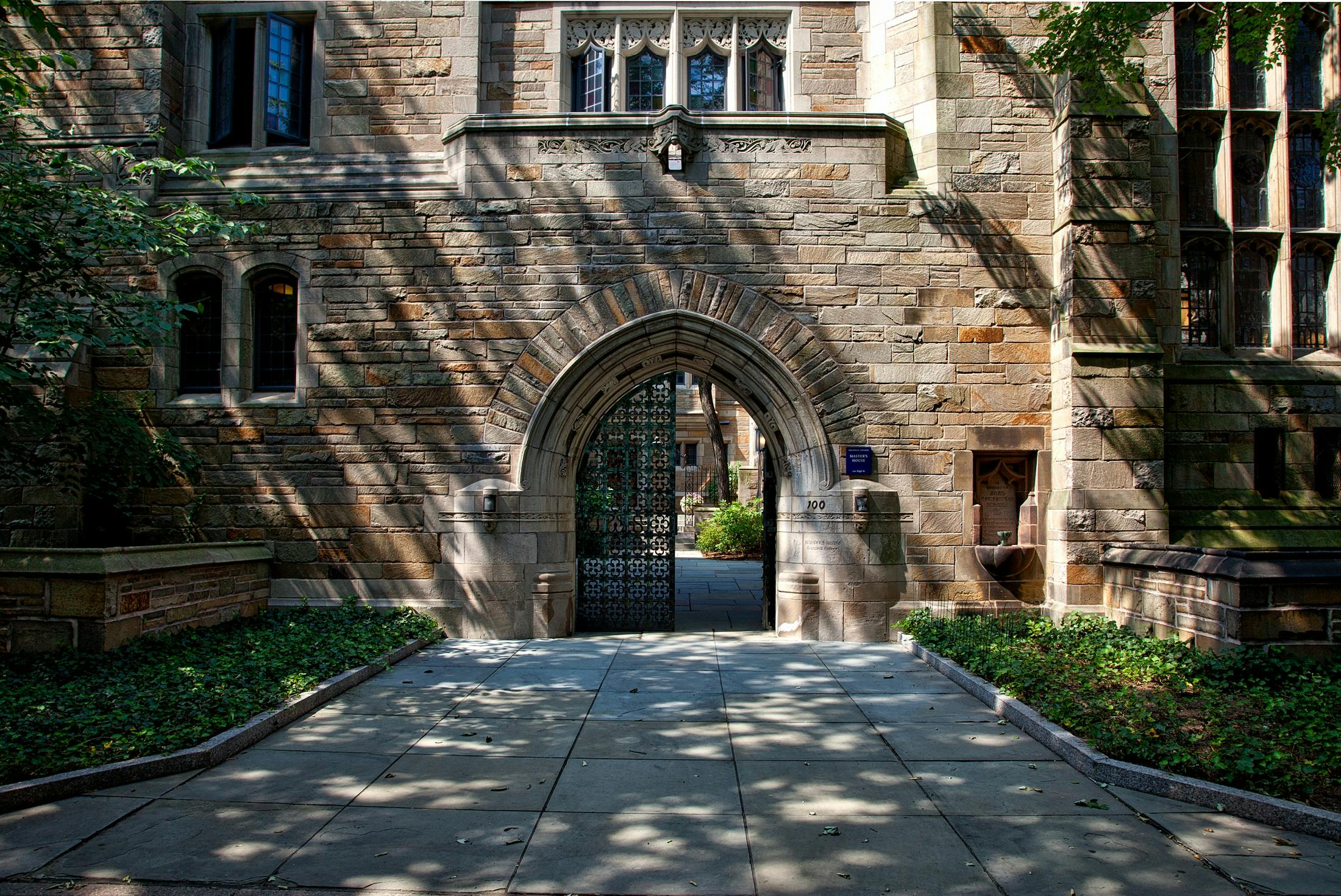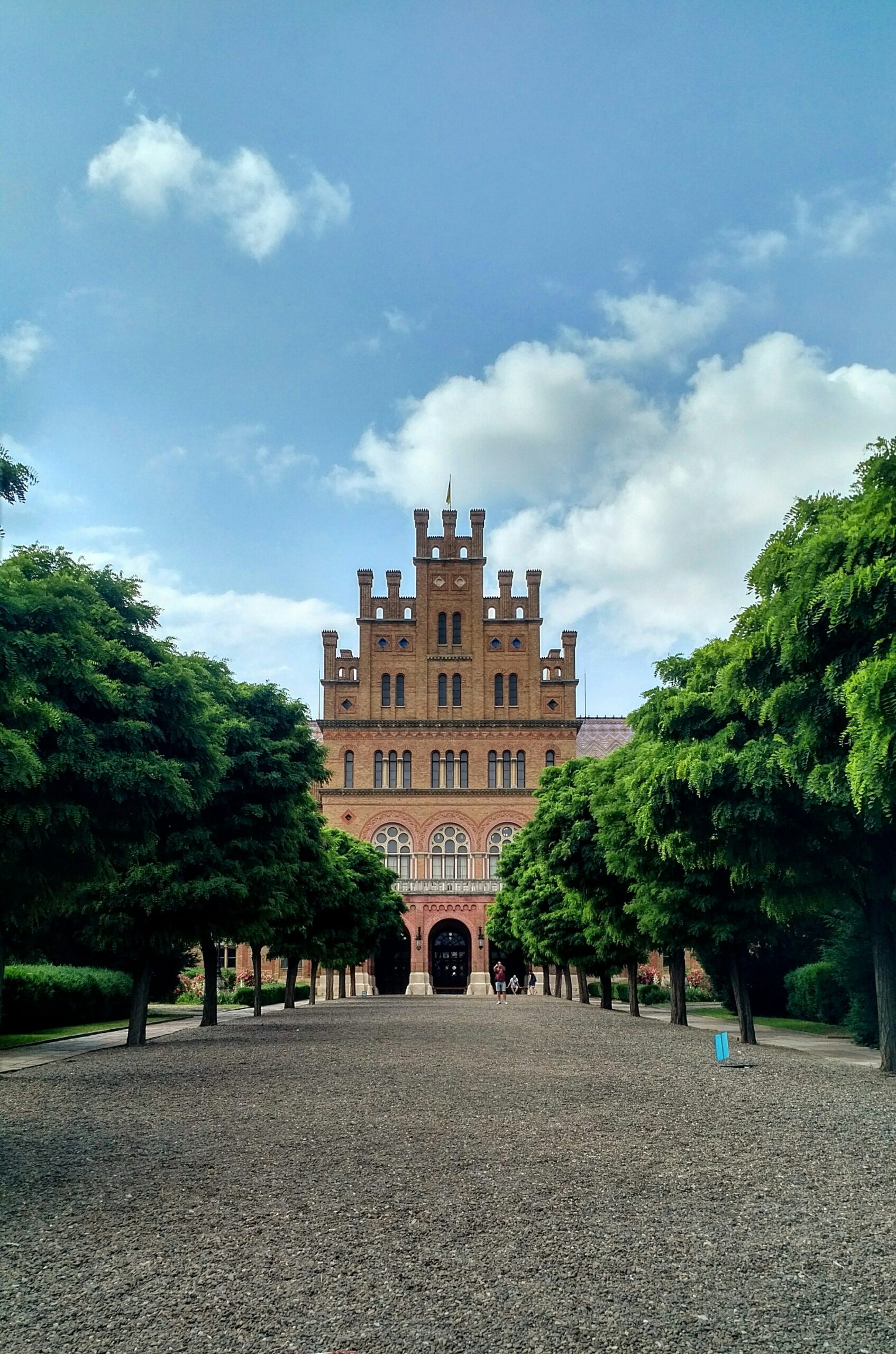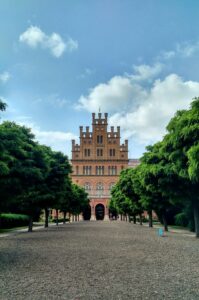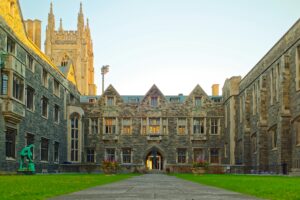University of Queensland
The University of Queensland: A Beacon of Excellence and Innovation
Introduction
Established in 1909, the University of Queensland (UQ) is one of Australia’s oldest and most prestigious universities. With its commitment to excellence in teaching, research, and community engagement, UQ has carved out a prominent position in the global academic landscape. This article delves into the rich history, academic offerings, research achievements, campus life, and future prospects of the University of Queensland, providing a comprehensive overview of this esteemed institution.
Historical Overview
Foundation and Early Years
The University of Queensland was founded on December 10, 1909, following a recommendation by the Queensland Parliament. The university was established to provide higher education to the residents of Queensland and to contribute to the state’s economic and social development. The first cohort of 83 students began their studies in 1911 at the university’s initial site in Old Government House, located in George Street, Brisbane.
The early years were marked by steady growth and expansion. The university’s first Chancellor, Sir William MacGregor, and its first Vice-Chancellor, Reginald Heber Roe, played crucial roles in shaping the institution’s direction and ethos. By 1927, UQ had outgrown its original premises and relocated to the St Lucia campus, which remains its primary location.
Expansion and Development
Throughout the 20th century, the University of Queensland expanded its academic offerings and infrastructure. New faculties and schools were established, including those in engineering, medicine, and law, reflecting the university’s commitment to a broad and inclusive education. Significant developments included the construction of iconic buildings such as the Forgan Smith Building and the opening of additional campuses in Gatton and Herston.
The post-World War II era saw a significant increase in student enrolments and research activity, driven by government policies promoting higher education and scientific research. The university continued to diversify its programs and invest in state-of-the-art facilities, solidifying its reputation as a leading research-intensive institution.
Academic Excellence
Faculties and Schools
The University of Queensland is organized into six faculties, each comprising various schools and research centres. These faculties offer a wide range of undergraduate, postgraduate, and professional programs, ensuring a comprehensive and multidisciplinary approach to education.
- Faculty of Business, Economics and Law (BEL)
- Business School
- School of Economics
- School of Law
- Faculty of Engineering, Architecture and Information Technology (EAIT)
- School of Chemical Engineering
- School of Civil Engineering
- School of Information Technology and Electrical Engineering
- School of Mechanical and Mining Engineering
- Faculty of Health and Behavioural Sciences (HABS)
- School of Dentistry
- School of Health and Rehabilitation Sciences
- School of Human Movement and Nutrition Sciences
- School of Nursing, Midwifery and Social Work
- School of Pharmacy
- School of Psychology
- Faculty of Humanities and Social Sciences (HASS)
- School of Communication and Arts
- School of Education
- School of Historical and Philosophical Inquiry
- School of Languages and Cultures
- School of Music
- School of Political Science and International Studies
- School of Social Science
- Faculty of Medicine
- School of Biomedical Sciences
- School of Public Health
- School of Clinical Medicine
- Faculty of Science
- School of Biological Sciences
- School of Chemistry and Molecular Biosciences
- School of Earth and Environmental Sciences
- School of Mathematics and Physics
- School of Veterinary Science
Global Rankings and Achievements
The University of Queensland consistently ranks among the top universities globally. According to the QS World University Rankings 2024, UQ is ranked 43rd in the world and 5th in Australia. The university’s programs in agriculture, environmental sciences, psychology, and mining engineering are particularly well-regarded, frequently appearing in the top 30 globally.
UQ’s commitment to research excellence is evident in its numerous accolades and achievements. The university has produced several Rhodes Scholars, Fulbright Scholars, and Nobel Laureates. Notable research breakthroughs include the development of the Gardasil vaccine for cervical cancer and significant contributions to hypersonic flight technology.
Research and Innovation
Research Institutes and Centres
The University of Queensland hosts a plethora of research institutes and centres, driving innovation across various disciplines. These include:
- Australian Institute for Bioengineering and Nanotechnology (AIBN): Focused on interdisciplinary research in bioengineering, nanotechnology, and biotechnology.
- Institute for Molecular Bioscience (IMB): Conducting cutting-edge research in genomics, drug discovery, and biotechnology.
- Queensland Brain Institute (QBI): Leading research in neuroscience, including brain function, neurodegenerative diseases, and mental health.
- Sustainable Minerals Institute (SMI): Addressing challenges in mining and minerals processing to promote sustainability and environmental responsibility.
- Global Change Institute (GCI): Focusing on research related to climate change, energy transitions, and sustainable development.
Collaboration and Partnerships
Collaboration is a cornerstone of UQ’s research strategy. The university partners with leading institutions, governments, and industries worldwide to address global challenges. Key partnerships include the Group of Eight (Go8), a coalition of Australia’s leading research-intensive universities, and numerous international research collaborations with institutions such as Oxford, Harvard, and the Chinese Academy of Sciences.
UQ also fosters innovation through industry engagement. The university’s commercialization company, UniQuest, has helped bring over 100 UQ-developed innovations to market, generating billions in economic impact. Initiatives like the ilab Accelerator support startups and entrepreneurs in translating research into practical solutions and commercial opportunities.

Campus Life
Student Demographics and Diversity
The University of Queensland boasts a diverse and inclusive community, with over 55,000 students, including more than 18,000 international students from over 140 countries. This cultural diversity enriches the campus experience, fostering a global perspective and promoting mutual understanding among students.
Campus Facilities and Resources
The university’s primary campus in St Lucia is renowned for its stunning natural setting and state-of-the-art facilities. Key features include:
- Libraries: The UQ Library network, including the Fryer Library and the Dorothy Hill Engineering and Sciences Library, offers extensive collections and research resources.
- Research Facilities: Cutting-edge laboratories, research centres, and technology hubs support advanced research and innovation.
- Accommodation: On-campus housing options, including residential colleges and student apartments, provide a supportive and vibrant living environment.
- Sports and Recreation: The UQ Sport facilities cater to a wide range of sports and fitness activities, encouraging a healthy and active lifestyle.
- Arts and Culture: The university hosts numerous cultural events, exhibitions, and performances. The UQ Art Museum and the UQ Anthropology Museum are notable cultural institutions affiliated with the university.
Student Support and Opportunities
Academic Support
The University of Queensland is dedicated to supporting its students’ academic success. It offers a range of services, including academic advising, tutoring, and workshops on study skills and time management. The Student Services team provides personalized assistance to help students achieve their academic goals.
Career Services
The university’s Careers Service helps students navigate their career paths, offering career counselling, job search resources, and networking opportunities. The service organizes career fairs, employer presentations, and internship programs, connecting students with potential employers.
Extracurricular Activities
Extracurricular activities are a vital part of the student experience at the University of Queensland. The university boasts over 220 student clubs and societies, covering a wide range of interests from academic and professional groups to cultural and recreational clubs. These organizations provide opportunities for leadership development, community service, and social engagement.
Global Learning
Global learning opportunities are a cornerstone of the University of Queensland’s educational approach. The university offers numerous exchange programs, study abroad options, and internships with partner institutions around the world. These experiences enhance students’ global awareness and prepare them for international careers.
Notable Alumni
The University of Queensland has produced an impressive array of alumni who have made significant contributions across various fields. Some notable alumni include:
- Peter C. Doherty: Nobel Laureate in Physiology or Medicine.
- Geoffrey Rush: Acclaimed actor and Academy Award winner.
- Quentin Bryce: Former Governor-General of Australia.
- Anna Bligh: Former Premier of Queensland.
- Andrew N. Liveris: Former CEO of Dow Chemical Company.

Challenges and Future Prospects
Addressing Global Challenges
As a leading institution, the University of Queensland is at the forefront of addressing global challenges such as climate change, public health, and social inequality. Its research initiatives and academic programs are geared towards finding innovative solutions to these pressing issues.
Embracing Technological Advancements
The rapid pace of technological change presents both opportunities and challenges for higher education. The University of Queensland is investing in digital infrastructure, online learning platforms, and cutting-edge research in fields like artificial intelligence and data science to stay ahead of these trends.
Enhancing Accessibility and Inclusion
The university is committed to enhancing accessibility and inclusion for all students, regardless of their background. Initiatives such as scholarships, outreach programs, and support services aim to ensure that higher education is within reach for underrepresented groups.
Conclusion
The University of Queensland, with its rich history, commitment to academic excellence, and forward-thinking approach, continues to be a leader in higher education. Its contributions to research, innovation, and societal development underscore its role as a vital institution in Australia and the world. As it navigates the challenges and opportunities of the 21st century, the University of Queensland remains dedicated to shaping the future through education, research, and community engagement.
This comprehensive overview highlights the myriad ways in which the University of Queensland influences and shapes the academic, cultural, and social landscapes














Post Comment